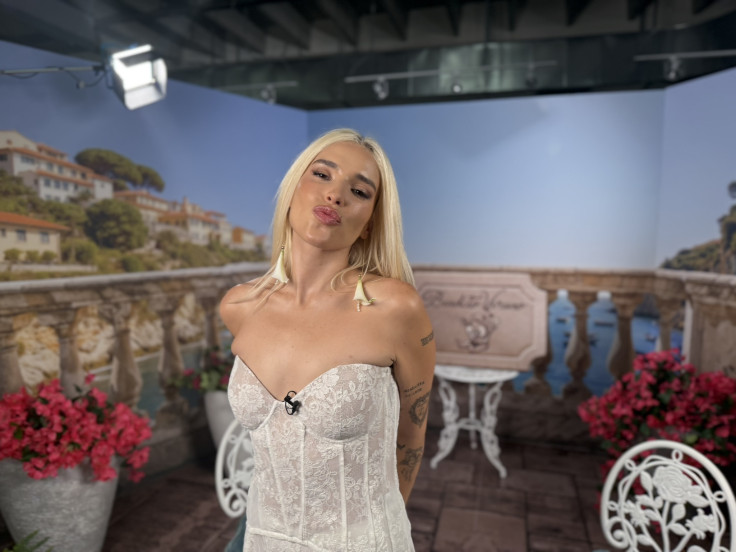
MIAMI - Elena Rose's name appears among the songwriting credits on dozens of Latin music hits. Few of them have been her own so far, as the Venezuelan artist released her debut studio album this weekend, giving it a title that evokes as much light as she projects: Bendito Verano . "It's an album made for each person to receive and interpret as best suits them," she told me excitedly .
Against the backdrop of an Italian balcony and a seemingly endless landscape, Elena Rose spoke with the broken voice and gentle gaze of someone who has learned to heal through music. The album's 12 tracks span 32 minutes and offer a powerful experience. For the Venezuelan diaspora, to which she belongs, it is an exceptional gift that hurts and heals at the same time. It was conceived in southern Italy, which inspired the album's visuals.
The accompanying track, " Luna de Miel ," is a collaboration with Rawayana . LA DE DIOS begins with "palomita blanca, copetico azul," a popular children's song in Venezuelan families. "That song begins with the voices of my mother and my grandmother. It's the song they sang to me before I went to sleep," she explains, recalling those days when Andrea Elena Mangiamarchi was the only one dreaming of what she's experiencing now.
"Blessed Summer" marks a turning point in the Venezuelan artist's career. It's not just a collection of melodies, but an intimate journey into memory, loss, and light. "As soon as they finish singing, I begin without music, as if following a conversation between generations. It represents the lineage of women in my family. I exist thanks to my mother, and my mother is thanks to my grandmother," she said with restrained emotion.
Her voice trembles slightly when she mentions Zeuz, her dog and lifelong companion, who died shortly before she recorded the album's videos. "He was my motivation, my son, my everything. His passing taught me that life only lasts a little while, and that I have to enjoy it more, embrace it more, be happy. Let it be summer all the time," she expressed tenderly. That phrase became a mantra, inspiration, and symbolic title for the album.
But Elena Rose's light doesn't shine alone. "I feel fortunate to be part of a group of Venezuelan artists who have become my family," she said. In Miami and beyond, that community has grown as a web of friendship and creative complicity, with names that today represent Venezuela in global music. "So many of us can't return, but we make sure that Venezuela comes with us to the world," she affirmed, proud of her land and her people.
"They are all a reason for me to continue and to feel proud not only of where I come from, but of the way we love. Venezuelans truly have a magic within us that is capable of doing very, very special, truly important things," she emphasizes.
In addition to Rawayana, the album also features the talent of Venezuelan producer Mazzari, who is part of that group of friends that includes, among others, Beto Montenegro, Danny Ocean, and more.
Puerto Rican influence, a country where this artist spent part of her childhood, appears in the form of Justin Quiles in Cosita Rica and Eladio Carrión in Roulin. Spreadlof (Manuel Llorente) also made their mark in Andrea's Interlude and Chilean Sistek in SINTIGO.
Elena has been wearing white since last year. Not for fashion, but for purpose. "White is a canvas. I want to represent that my music isn't about me, but about what you want it to be in your life. I just want to be with you," she explained. However, laughing, she admits that she sometimes misses wearing black: "Black is also a canvas," she jokes. That duality between light and shadow defines her art: vulnerable yet powerful, spiritual yet sensual, warrior yet dreamy.
You can watch the full interview here, and listen to the album below.





